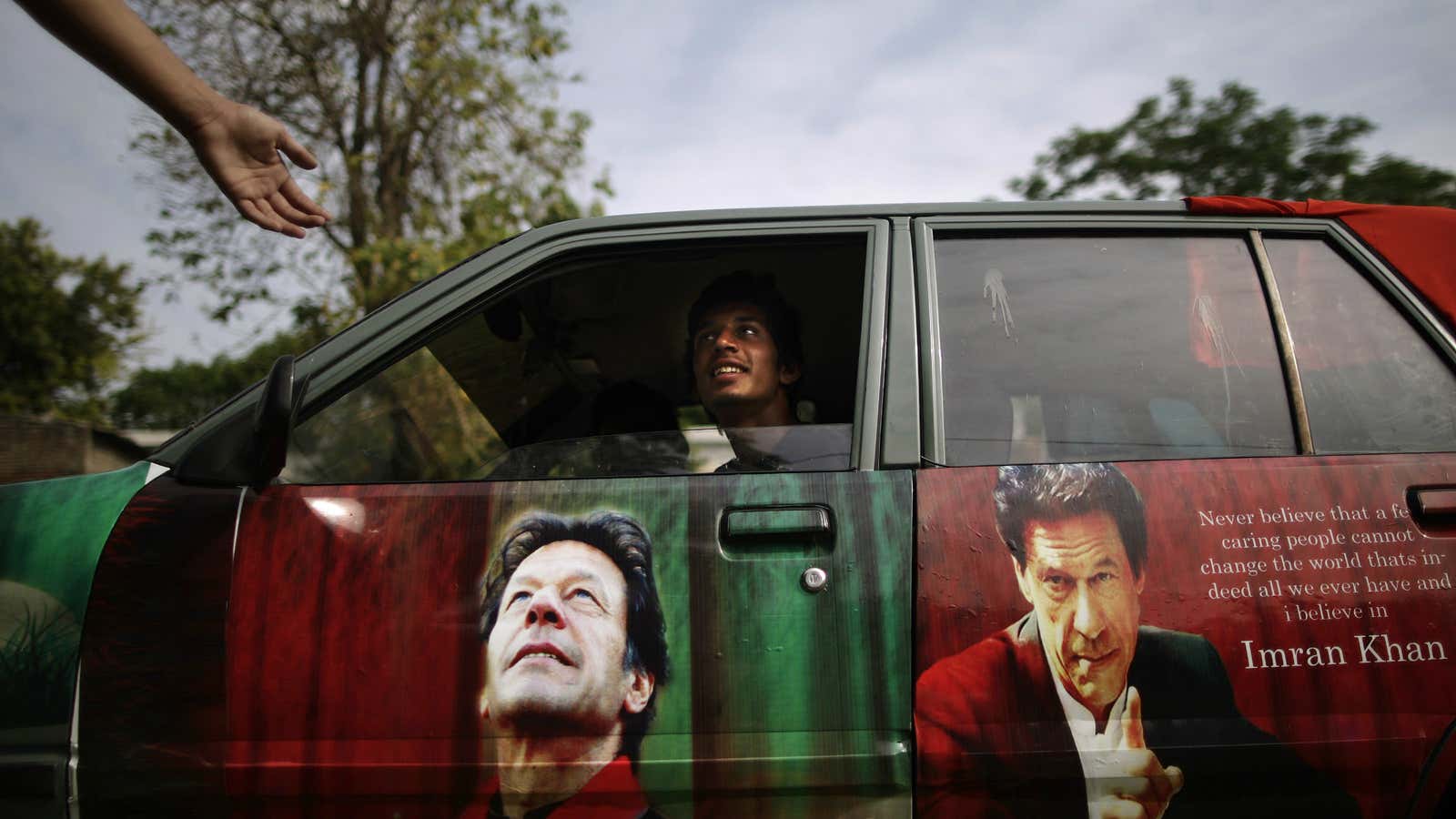The outcome of Pakistan’s historic elections largely hinges on voter turnout, luring one unlikely group of voters: expatriates.
Today marks the first time in the country’s 66-year existence that a democratically elected government will hand over power to another democratically elected government. The frontrunner appears to be the party of former prime minister Nawaz Sharif. But that has only further emboldened Pakistan’s emigrants to return home to cast ballots for their candidate of choice, cricketer Imran Khan.
“I paid $1,300 for a return ticket to Pakistan for an opportunity to vote in these elections,” says Mustafa Jalil Qureshi, a graduate student in Durham, North Carolina. “I’m here to vote for Imran Khan. Even if Imran doesn’t win, he’ll form a strong opposition that will hold other political parties accountable and stand up for the common man.”
Khan has turned traditional Pakistani politics on its head this year by campaigning on a platform that strongly echoes US president Barack Obama’s election campaign in 2008. Promising to bring a “tsunami” of change, Khan’s electrifying political rallies have captured the imagination of Pakistan’s youth and overseas community, a demographic that has traditionally remained disillusioned with the country’s politicians.
“I wasn’t convinced by Imran initially,” says Masooma Naqvi, a recently married Pakistani based in Dubai. “But my husband’s enthusiasm for Imran’s policies changed my perspective. Originally, I wanted to save money to come to Karachi for a friend’s wedding. Instead, we spent that money on our flight to Karachi, just to participate in these elections.”
Her husband Shozab Naqvi is a banker and says: “Imran has a great team which could turn around Pakistan’s economy. The economic dividend will also reduce terrorism.”
Some Pakistanis who left say they would return if the political and economic situation improved. “I want to come back to Pakistan in the long term,” says Naqvi. “I’m part of a targeted religious minority group. I really want rule of law in the country.”
His younger brother also traveled to vote—from Lahore to Karachi, where he is registered. “My parents told me that my vote won’t make a difference but I decided to come nevertheless,” says Komail Naqvi, a student at the Lahore University of Management Sciences. “Besides, I knew Shozab would be willing to pay for my ticket.”
The hurdles these three members from one family jumped, just to vote, are echoed across Pakistan. Stories like this also have been making the rounds through social media to convince fellow Pakistanis to not take their votes for granted, despite security threats.
The tactic seemed to have worked: Authorities extended voting hours to 6 p.m. to accommodate long lines.
